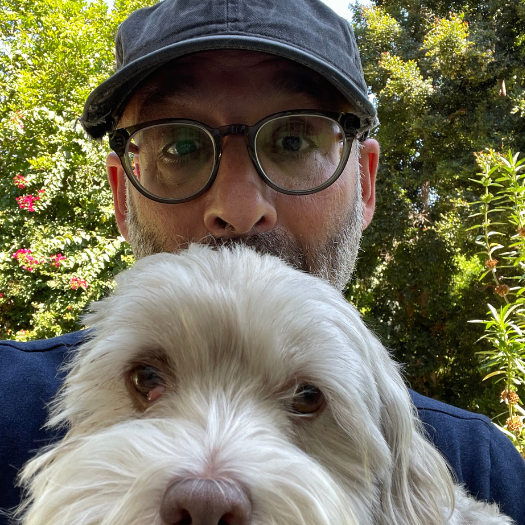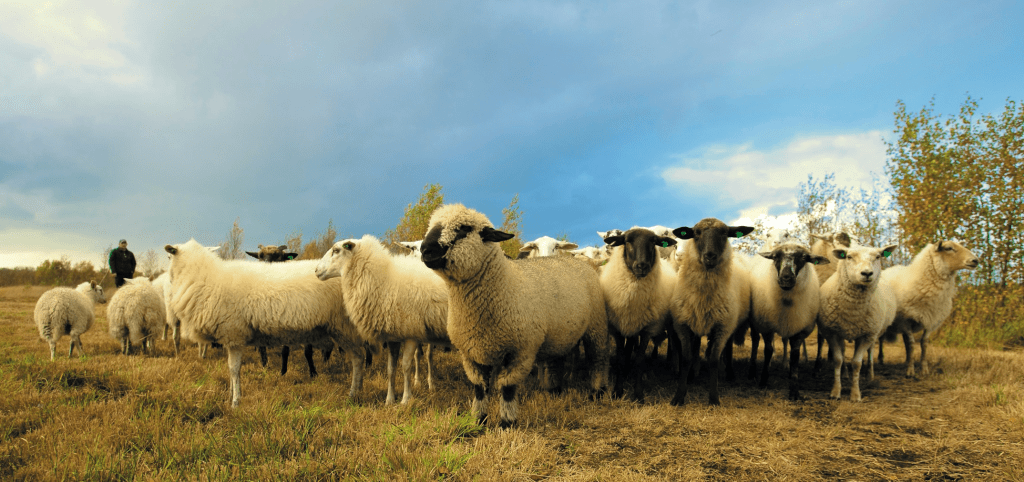- The 17th century French philosopher Rene Descartes asserted that animals lacked souls and feelings, and therefore one could do with them as one pleased. Descartes’ conception of animals as unfeeling automatons still rationalizes the way we treat the 70 billion factory farm animals raised and killed in abhorrent conditions in the American food system each year.
On the opposite pole there’s Jainism, a religious philosophy that values all sentient creatures so deeply that Jain monks wear the muhapatti, a cloth that covers their noses and mouths, to avoid unwittingly killing the insects or other living beings through the process of breathing.
Jewish tradition walks between these two poles. One the one hand, our sages taught that animals possess souls and that a mark of righteousness was sensitivity to animals: “The righteous person cares about the soul/life of their animal.” (Proverbs 12:10). And on the other hand we are given dominion over (Genesis 1:28) and then later permitted to eat certain animals (Genesis 9:3).
Guiding us on the path between these poles is the concept of tza’ar ba’alei chayim. Literally translated as the suffering/distress of life’s owners—this concepts’ fundamental principles are these:
- Animals are sentient beings: they feel and are capable of distress;
- We are obligated at all moments to minimize an animal’s unnecessary distress;
- This mitzvah/obligation is given the same weight in Jewish tradition as observing Shabbat, daily prayer, or giving tzedakah (justice-based aid or philanthropy).
Applying these principles helps us navigate between power and kindness, so we may have a kosher/proper relationship with the other animals with whom we share this world.
Each year the first day of the Hebrew month of Elul provides a space where we can reflect on how we navigate between these poles. Like Tu b’Shevat—colloquially referred to as the Jewish new year for the trees—there is also a new year for the animals, Rosh Hashanah La’Behemot. Though originally tied to tithing (offering up a portion of income, in this case a portion of one’s flock or herd), nowadays it offers us a chance to consider our own actions:
How do I treat the animals directly in my care?
How do my life choices impact animals?
What positive actions am I taking on a personal level to foster my own active support and connection to animals?
How do I translate my personal beliefs and life choices on to the communal stage and have an impact on the world around me?
My own career path mirrors these questions. I was a pulpit rabbi for 25 years and over that time moved in fits and starts to a plant-based diet. It was a personal journey that I shared with my congregation. But the more I realized the interconnection between animal welfare, diet, and climate, the more I believed that we are also obligated to share our learning about the food system with others and seek appropriate and effective ways to change how the community approaches animals.
And that is why I am thrilled to be hired as the first Executive Director of the Jewish Initiative For Animals (JIFA). I believe that JIFA’s focus on helping institutions align their food choices and policies with their Jewish values will yield benefits for the animals, us, and our world.
And it begins with you. And me. Now.
Before we seek to change our institutions, let us reflect on our own actions. Let’s consider ways we ourselves can grow in compassion towards animals.
And let that compassion guide us as we seek to create a more compassionate world.




